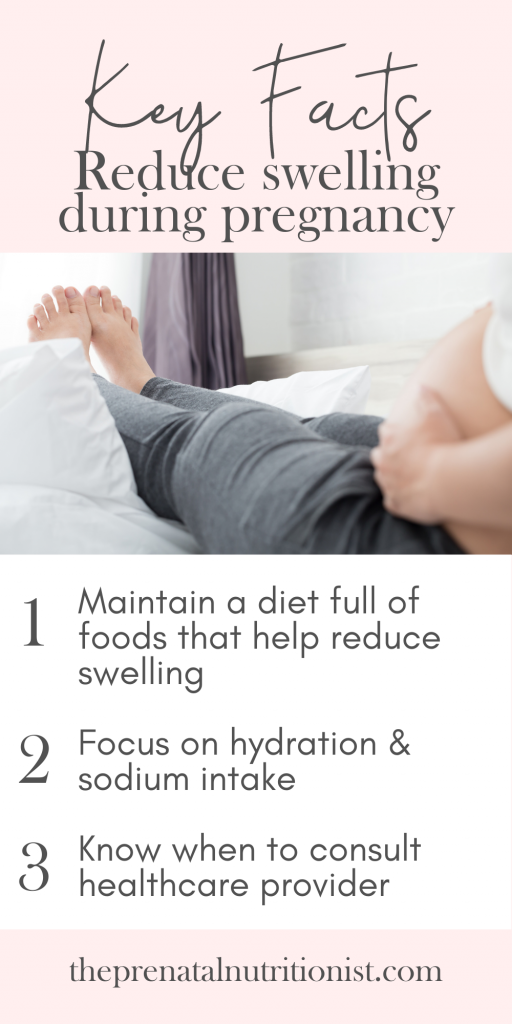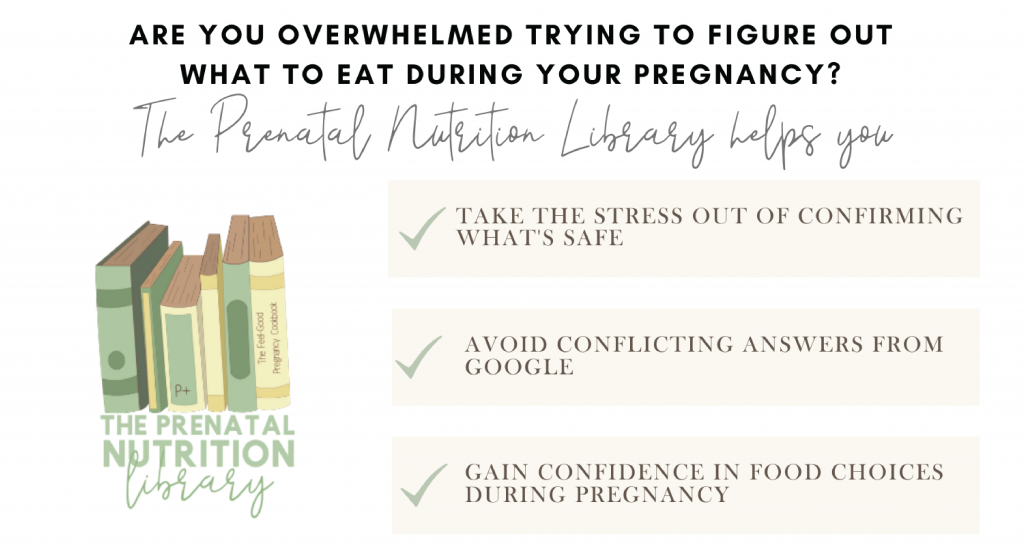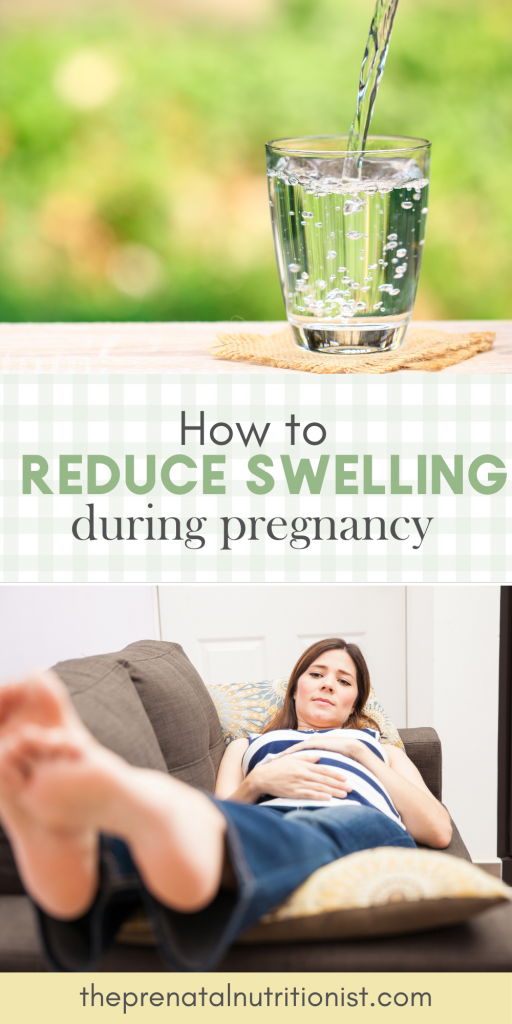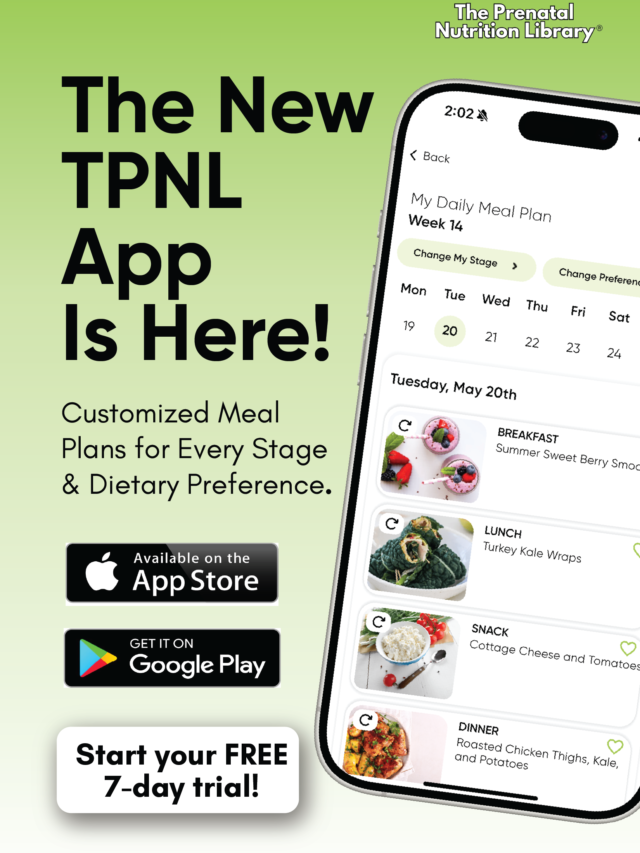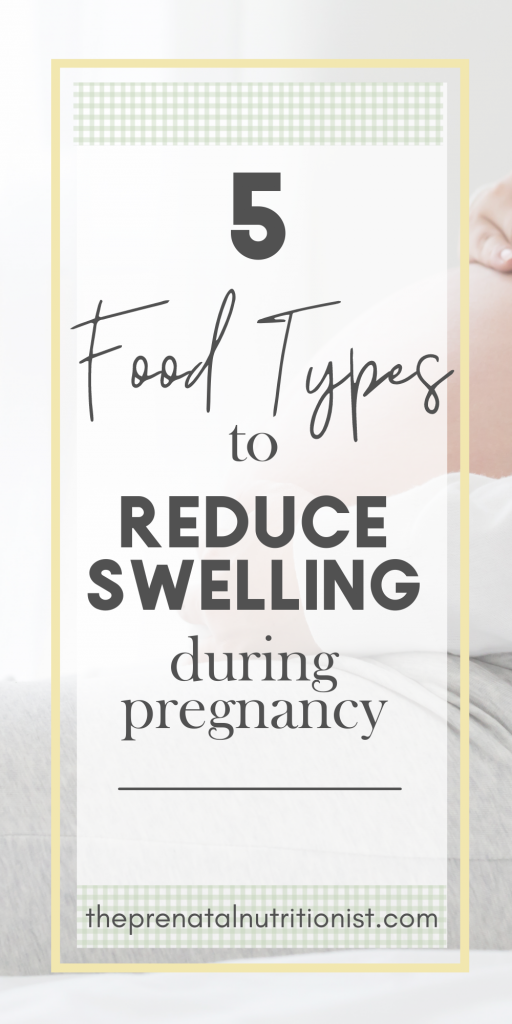
Swelling is one of the biggest challenges that comes with pregnancy for some people. Expectant mothers often find themselves with swollen feet and ankles which is certainly not ideal when dealing with a growing belly, raging hormones, and a nursery design and build.
Pregnant people can expect to potentially experience swelling throughout their entire pregnancy. However, it can really kick into overdrive as you are nearing the third trimester. And, forget it when it’s warmer outside, your feet can seriously double in size due to heat.
But, no need to stress or worry, swelling is completely normal (for the most part!) and very common during pregnancy.
Causes of Swelling During Pregnancy
The causes of swelling during pregnancy (also called edema) are varied. Although it’s mostly caused by extra fluid in your body and the pressure generated by your growing uterus, alongside fetal development. It’s normal for pregnant people to suffer from water retention and less blood flowing through their legs.
Hormones have a part to play in this process as well, as a body that is chemically balanced is less likely to swell. No matter the cause, the good news is that you can reduce swelling during pregnancy!
A well-balanced diet is always crucial when it comes to maintaining good health, and nutritious food can act as a perfect home remedy for pregnancy swelling. Finding a prenatal vitamin that is right for you can also help support swelling and good health. Don’t forget to check out our full prenatal vitamin guide to help you find the right one for you inside The Prenatal Nutrition Library!
Let’s face it mama’s, we need all the help we can get when it comes to feeling comfortable during pregnancy. So today we’re sharing a huge list of foods to reduce swelling during pregnancy. Keep reading to find out more!
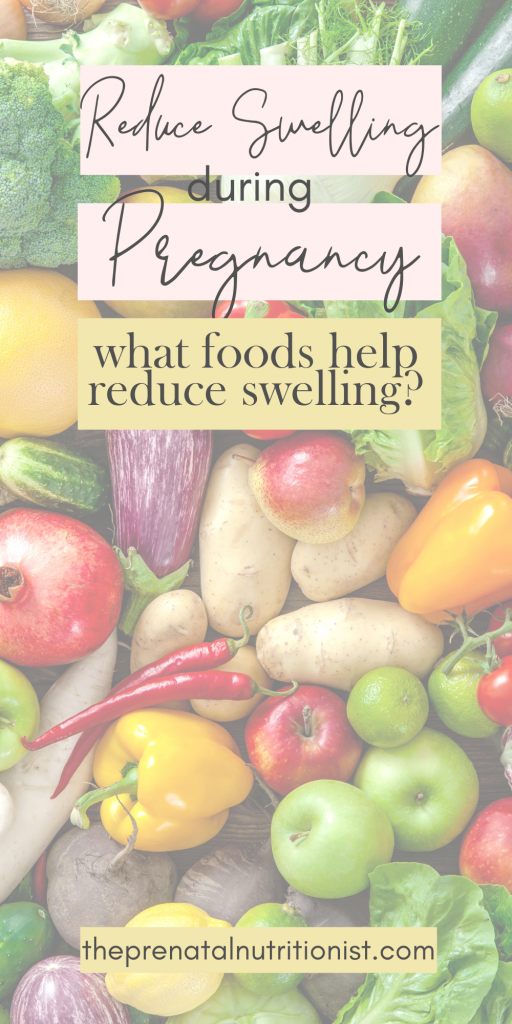
Foods To Reduce Swelling During Pregnancy
Diuretic Foods:
These are foods that cause an increase in the excretion of fluids through the kidneys, therefore helping with fluid retention and lessening swelling. They’re great to eat in generous quantities and a perfect addition to any healthy meal.
- Asparagus
- Celery
- Artichokes
- Leafy greens
- Carrots
- Beets
- Pineapple
- Garlic
- Grapes
- Onions
- Green beans
Increase your magnesium intake:
Magnesium deficiency is common which can be problematic since it is involved in hundreds of processes in your body. Magnesium is also an electrolyte working to ensure proper hydration, pH balance, nerve function, and muscle function.
You can include many of these in a delicious salad, smoothie, protein bowl, or entree and get rid of swollen feet in the process!
- Spinach
- Avocado
- Dark chocolate
- Black beans
- Salmon
- Pumpkin seeds
- Chia seeds
Potassium-Rich Foods:
Potassium helps to reduce swelling because it keeps your body chemically balanced. These foods contribute to managing your hydration status and avoiding annoying inflammation in your body. You should eat two servings of these foods high in potassium per day to get the best results!
- Bananas
- Butternut squash
- Sweet potatoes
- Avocados
- Kidney beans
- Black beans
- Peas
- Spinach
- Potatoes
- Apricots
- Cucumbers
- Mushrooms
Foods Rich in Antioxidants:
Swelling often comes with inflammation and antioxidants are the perfect way to fight the inflammation that may be occurring. You can add these foods to any snack or meal and eat them throughout the day.
- Artichokes
- Olive oil
- Nuts like almonds
- Tomatoes
- Cherries
- Bell peppers
- Broccoli
- Blueberries
- Raspberries
Hydrating Foods:
In order to reduce swelling, you actually need to take extra care of your overall hydration. When you’re not getting enough water, your body tends to hold on to it, increasing fluid retention, making you feel bloated and swollen.
Drinking water and eating hydrating foods can help keep your body stay hydrated overall and reduce fluid retention.
Here are some foods packed with water:
- Cucumbers
- Watermelon
- Peaches
- Strawberries
- Cantaloupe
- Lettuce
- Oranges
- Tangerines
- Grapes
- Tomatoes
- Soups / Bone Broth
How To Reduce Swelling During Pregnancy
Reduce your sodium intake:
Sodium intake leads to water retention in pregnancy, and fluid retention leads to swollen feet and ankles. So, try to limit high-salt foods, such as fast food meals, chips, and avoid processed foods if you want to reduce swelling during pregnancy.
It’s not necessary to cut table salt completely as sodium is needed in higher amounts during pregnancy, but instead be mindful about where it is coming from.
Keep those feet elevated:
This helps maintain the blood flowing to and from your legs and heart. Try putting your feet up three times a day, sitting or laying down. As long as your legs are above your heart you’re doing it right. You can always lay on your right or left side, similar to a fetal position if you feel like switching things up.
Avoid high heels:
This one is a bit of a no-brainer. You should be wearing comfortable clothing, especially shoes if you want to avoid feeling puffy. Wearing high heels puts a lot of strain on not just your feet, but other joints in muscles in your body making swelling worse.
You’re making a baby! So give your body a break and throw on those sneakers or comfortable flip flops. No judgement!
Drink extra water:
Up your water intake big time during pregnancy! Stay hydrated at all times and balance the amount of fluids, as it helps to flush sodium out of your body, get nutrients to the baby, and help you avoid swelling.
How To Reduce Pregnancy Swelling In Feet:
You should avoid hot and humid weather unless you don’t mind dealing with swollen feet. Resting enough is also important so you can get blood from your lower extremities. So turn on the AC and lay down with a good book to read. You can elevate your feet in the meantime, as well!
Wear compression stockings:
These stockings help to compress your legs and feet to keep fluid circulating properly. They are not a dream as far as style is concerned, but they do get the job done with the return of blood to legs and feet.
Know when to consult a professional healthcare provider:
Pregnancy swelling is perfectly normal, but if you are experiencing unusual or elevated symptoms, it’s best to reach out to your doctor for a professional opinion.
If you are experiencing uneven swelling, protein in the urine, abnormally high blood pressure, significant and persistent pain, redness and tenderness in the body, or high warmth to the touch in addition to edema, you should call a doctor.
It’s not necessary to panic right away, but it’s always better to be safe than sorry when you’re growing another human in your belly!
What is your favorite food to reduce swelling during pregnancy?
There you have it, all the foods to help you reduce edema during pregnancy! If you eat these foods on a regular basis and implement some of the mentioned tips, you can kiss your swollen feet goodbye. Or, at least get them to calm down a bit! Remember to always check with a professional if you are experiencing unusual symptoms on top of the swelling.
Good luck keeping that swelling at bay, and if you need additional tips on managing pregnancy symptoms, join The Prenatal Nutrition Library. Your one-stop hub for ALL things prenatal nutrition that provides evidence-based, clear recommendations to ensure pregnant women have a feel-good pregnancy!
